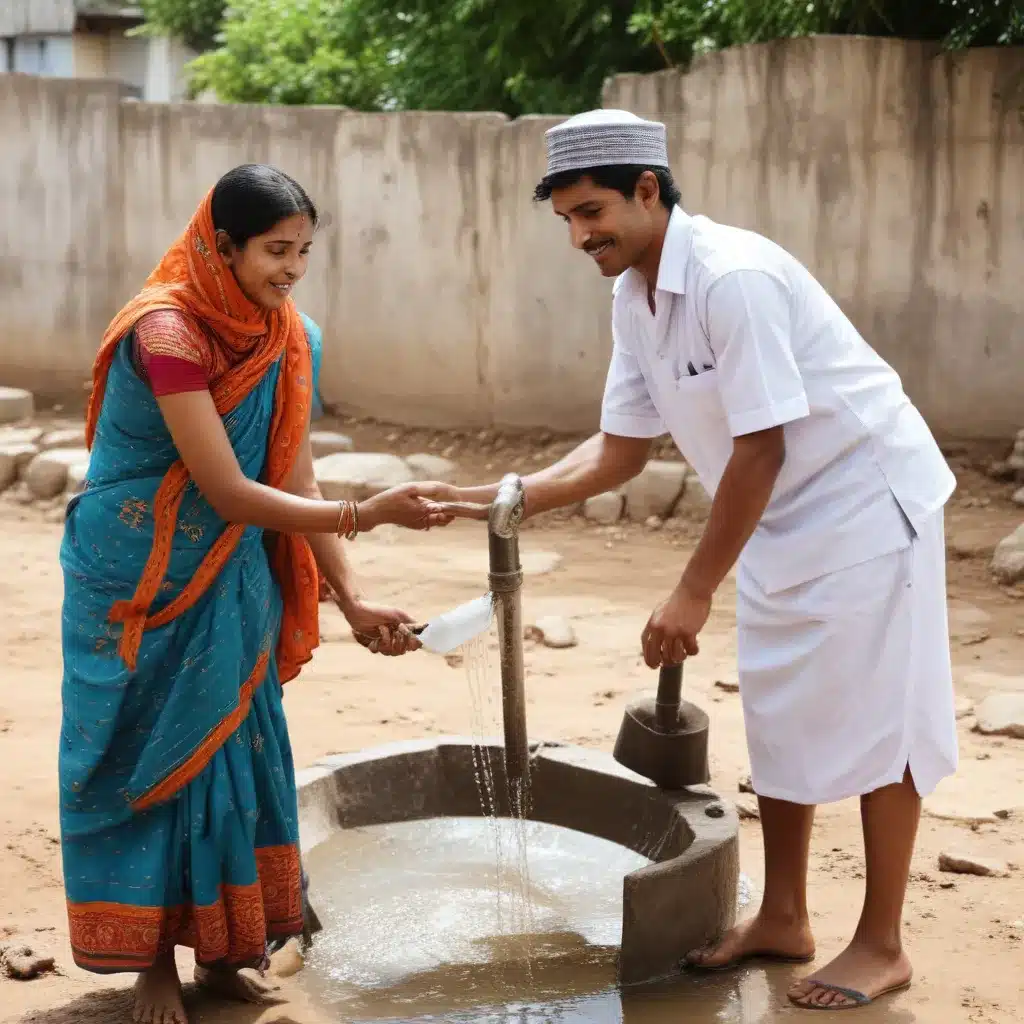
Strengthening Community Engagement and Advocacy for Sustainable WASH Solutions
Community-based organizations (CBOs) play a crucial role in driving sustainable water, sanitation, and hygiene (WASH) services at the grassroots level. In Hyderabad, India, these local groups have emerged as essential partners in bridging the gap between government programs and community needs. By enhancing the capacity of CBOs, we can empower these organizations to advocate for improved WASH access, strengthen service delivery, and foster long-term community ownership.
Empowering CBOs through Capacity Building
One of the key strategies for enhancing CBO capacity in Hyderabad is through comprehensive training and skill development programs. These initiatives should equip community leaders with the necessary knowledge, tools, and resources to effectively engage with local authorities, manage WASH infrastructure, and mobilize community participation.
A successful case study from the Christian Health Association of Kenya (CHAK) highlights the impact of capacity-building efforts. CHAK committed to improving its Healthcare Technology and Institutional and Organizational Development (IOD) departments, enabling them to better serve their membership of 540 facilities. By creating a legally registered business venture for sustainability, CHAK’s departments were able to realize their full potential and support their members in strengthening medical technology.
Similarly, in Hyderabad, CBOs can benefit from training on technical aspects of WASH infrastructure management, financial planning, and monitoring and evaluation. The Expanded Church Response (ECR) in Zambia also committed to strengthening the capacity of volunteer community health workers and local churches to positively influence health promotion, early care-seeking, and community referrals.
Fostering Community-Government Collaboration
Effective CBO engagement requires strong collaboration between the community and local government authorities. In Hyderabad, CBOs can work to establish regular dialogues with municipal departments, water utilities, and sanitation agencies to ensure that community voices are heard and their needs are addressed.
The Citizen Access to Responsive Services Project in Madhya Pradesh, India provides a valuable example. The project aimed to improve access to public services and facilitate citizen outreach, simplification of government services, and performance management. By strengthening government-community partnerships, the project empowered citizens to hold local authorities accountable for service delivery.
In Hyderabad, CBOs can leverage similar approaches, advocating for transparency, responsiveness, and inclusive decision-making processes. This can involve engaging with officials, participating in policy dialogues, and collaborating on the design and implementation of WASH programs.
Promoting Sustainable Financing for WASH
Securing sustainable financing is a critical challenge for CBOs in Hyderabad. By enhancing their capacity to access government funding schemes, explore public-private partnerships, and mobilize community contributions, these organizations can ensure the long-term viability of WASH service delivery.
The Andhra Pradesh Rural Water Supply and Sanitation Project provides a useful model. The project aimed to assist the government in improving rural water supply and sanitation services through a decentralized, demand-responsive approach. By building the capacity of local institutions and communities, the project enabled sustainable management and financing of WASH infrastructure.
In Hyderabad, CBOs can work to develop innovative financing mechanisms, such as community-based revolving funds, user fees, and partnerships with local businesses. This can help ensure the long-term viability of WASH services and empower communities to take ownership of their water and sanitation solutions.
Fostering Synergies through Networking and Collaboration
To amplify their impact, CBOs in Hyderabad can benefit from networking and collaboration with other community organizations, civil society groups, and development partners. By sharing best practices, pooling resources, and coordinating advocacy efforts, these organizations can create a stronger, unified voice for WASH service improvements.
The Neeranchal National Watershed Project in India provides an example of how networking and collaboration can drive positive change. The project aimed to support the Integrated Watershed Management Program (IWMP) through technical assistance, strengthening institutions, and fostering innovation. By engaging with national stakeholders, the project was able to improve the operational effectiveness of the IWMP and measure its impact on the ground.
In Hyderabad, CBOs can explore partnerships with local non-governmental organizations (NGOs), academic institutions, and international development agencies to access technical expertise, funding opportunities, and scaling pathways. This collaborative approach can help CBOs amplify their advocacy efforts, share knowledge, and replicate successful WASH interventions across the city.
Monitoring, Evaluation, and Learning for Continuous Improvement
Robust monitoring, evaluation, and learning (MEL) systems are essential for CBOs in Hyderabad to track their progress, measure impact, and continuously improve their WASH service delivery. By collecting and analyzing data, these organizations can identify challenges, document best practices, and make informed decisions to enhance their programs.
The Andhra Pradesh Health Systems Strengthening Project highlights the value of robust MEL systems. The project aimed to improve the quality and responsiveness of public health services and increase access to an expanded package of primary health services. By strengthening impact evaluation and social accountability, the project enabled the government to make data-driven decisions and better respond to community needs.
In Hyderabad, CBOs can adopt similar approaches, developing customized MEL frameworks that capture key performance indicators, community feedback, and sustainability metrics. This data-driven approach can help CBOs demonstrate their impact, secure funding, and continuously refine their WASH interventions to meet the evolving needs of their communities.
Conclusion
By enhancing the capacity of community-based organizations in Hyderabad, we can unlock the full potential of these grassroots groups to drive sustainable WASH service delivery. Through comprehensive capacity-building, fostering community-government collaboration, securing sustainable financing, promoting networking and collaboration, and implementing robust MEL systems, CBOs can become powerful agents of change, empowering communities and advocating for their right to clean water and improved sanitation.
As we work to address the pressing WASH challenges in Hyderabad, let us recognize the vital role of CBOs and invest in their capacity to create lasting, equitable, and community-owned solutions. By embracing this community-centered approach, we can pave the way for a future where every household in Hyderabad has access to safe, reliable, and affordable water and sanitation services.
Explore the Joint Action for Water blog to discover more inspiring stories and practical insights on water and sanitation initiatives across the globe.

